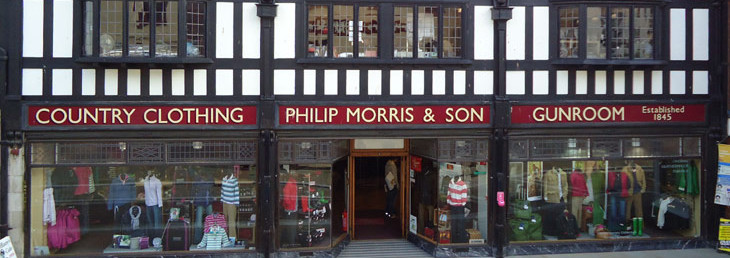Small local brands: You either collaborate or you’ll be intermediated

Few weeks ago I wrote about how different consolidated brands are already collaborating to deal with oncoming niche “markets of ten thousands”. Another much more important opportunity for collaboration will have to be born from a need originated the other way round, from thousands of niche companies willing to enjoy the benefits of the level of visibility and consistency that only a more “mainstream” brand can offer.
Some early Internet evangelists promised anybody with a website and an e-commerce platform can have a global market no matter how small the company or where it is located. A theoretical true, that statement does not take into consideration the laws of Attention Economics that Internet itself is boldly proving right from the very first moment.
It’s also true “Long Tail” niche offers can overcome this barrier by the same differentiation and exclusivity that made them niche in the very first place. Yes, it’s possible to create a global audience or market by offering something nobody else is offering and then establishing a relationship with your customers leveraging all new media and tools available today. Yet, still, this level of differentiation is not always and for everybody possible.
Collaboration with others such niche brands can make this strategy less difficult and more potentially fruitful. Good news is people seem to be rejecting the notion of large corporations and are looking for companies whose people and story they can connect with. Bad news is Attention Economics apply, making impossible for custumers to have a relationship close enough with all niche brands that could be relevant to them in a particular moment.
This is why even living in a flat world we still need intermediaries. A different kind, but still intermediaries. But in the digital paradigm, once eliminated geographical proximity as a factor, we only need one of these intermediaries for each of the limited list of categories our minds can deal with, making monopolies or oligopolies a natural and logical outcome for every market.
Good for those understanding becoming the perfect interface for a particular category of products or services is the fast lane to success (and dollars) in the digital realm. Too bad for the ones who will have (or already have) to deal with a monopolist in order to make their products or services visible and purchasable. Good for Apple. Too bad for thousands of musicians or app developers taken a cut of a third of every sale that would have been considered outrageous if taken by a local record or software shop. For every Etsy or Zappos of the world, there is the menace of them taking advantage of a dominant position, the threat of the “Upper Hand” syndrome we wrote about referring the case of Fulfillment by Amazon.
Collaboration will be the only possible answer for the convergence of a growing number of niche offers and the challenge for these companies of having enough scale for their offers to be visible and purchasable. If these companies do not create and own their own intermediation by collaborating with others, somebody else will create a digital intermediation for them.
Co-Society was recently involved in a project for an association of cooperatives looking for new roles in a changing, much different world in which the Co-op concept was born. There is still an opportunity to build many middleware platforms between consumers and niche offers, an opportunity for umbrella organizations representing smaller or local brands and offers with a promise to the consumer of a guaranteed consistency and quality. But for these to be own by the smalls brands themselves, there will be not other way that to be implemented and managed by a more collaborative, democratic and horizontal organizations we are used to, organizations similar to the structure and mindset with which cooperatives were born more than a century and a half ago.
